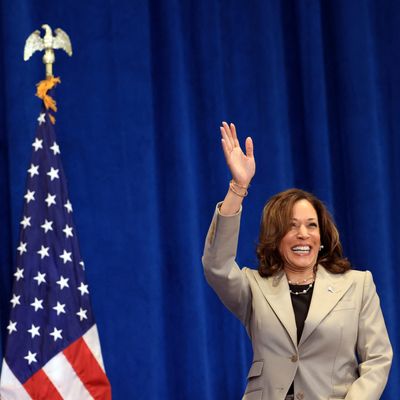
President Joe Biden’s decision to withdraw from the 2024 presidential election and endorse Vice-President Kamala Harris as his successor occurred just as Democrats were beginning to finalize arrangements for their convention in Chicago. Here’s a guide to how these new developments will affect Democrats’ plans as they gear up to take on Donald Trump in November.
When is the Democratic National Convention?
The DNC runs from Monday, August 19, to Thursday, August 22.
Are delegates won by Biden in the primaries bound to him?
No. Unlike Republicans, Democrats do not legally bind delegates; they merely have a moral obligation to honor pledges as long as their candidate is in the field. Fourteen states have laws requiring that delegates honor pledges, but they all have provisions for releasing delegates when a candidate withdraws, as Biden has done. And in any event, there is Supreme Court precedent for national party rules superseding state laws with respect to convention delegates.
U.S. House Speaker Mike Johnson has made noises about launching lawsuits to prevent Democrats from “switching out” a nominee after primaries have ended, but no credible legal expert thinks the idea has merit. Biden was never any more than the “presumptive” nominee for 2024, and any ballot access for the general election depends purely on formal nomination by Democratic delegates.
What is a “virtual roll call,” and why are Democrats planning one?
Normally, major parties make presidential and vice-presidential nominations via a “roll call of the states” held at a regular session of their conventions (though uncontested nominations can happen quickly and without much fanfare, as occurred on the first day of the 2024 Republican convention when Donald Trump and J.D. Vance were rubber-stamped before most media coverage began). In 2020, however, Democrats chose to deploy a “virtual roll call” — really just a series of video presentations of each state’s vote — after abandoning most live-convention activities because of COVID-19 precautions. In May of this year, the Democratic National Committee chose to move forward with another “virtual roll call” to make the presidential and vice-presidential nominations prior to the Chicago convention, for reasons ranging from concerns about protests in Chicago to a ballot-access law in Ohio that required nominees be certified by August 7.
On July 19, before President Biden’s decision to withdraw from the race, the Democratic National Convention’s Rules Committee met and confirmed that it would proceed with a “virtual roll call” at some point between August 1 and August 7 (despite a new law enacted by Ohio’s Republican legislature that would retroactively move the deadline to September). A subsequent meeting of that committee, which finalized convention rules, clarified that the virtual roll call will be held on August 1 if only one candidate is running and on August 3 if multiple candidates are running.
Technically, the “virtual roll call” could be revisited at the convention to change the nominee, but that’s not going to happen barring some development even stranger than those we’ve already witnessed this year.
Who can run for the presidential nomination?
The convention’s rules as finalized on July 24 provide that any person willing to announce a candidacy and show evidence of support from 300 delegates (no more than 50 from one state) can have her or his name placed into nomination and secure votes; certification of candidacy must happen by July 27. At this point, Kamala Harris has already qualified (she’s already been endorsed by all 50 state-party chairs). It’s much less likely that the other announced candidate, Marianne Williamson, can reach the delegates thresholds, and other candidacies (including the rumored possible run by Joe Manchin) remain possible but not at all certain. So technically this will be an “open convention,” but it probably won’t be at all competitive.
How many delegates will make the decision?
3,949 delegates were chosen in the Democratic presidential primaries and subsequent deliberations. An additional 749 “automatic” delegates — better known as “super-delegates” — will attend in recognition of the offices they hold (or held). They include members of the DNC, members of Congress, governors, and former presidents and vice-presidents. Technically, the super-delegates are barred from voting on the first ballot, but a loophole will allow them to do so if as appears certain Harris has already won a majority before the virtual roll call is held.
How will the vice-presidential nomination be conducted?
As was the case in 2020, the Rules Committee has determined that the presidential nominee will choose a running-mate without further ratification, other than a ceremonial vote at the convention. There will be no separate virtual roll call on the vice presidential nomination.
Are there additional complications in “switching out” nominees?
Though Republicans may try any number of public-relations and legal initiatives to draw attention to what they are calling the “coup” to replace Biden at the top of the ticket, the only one likely to have much traction is a challenge to the ability of Harris to utilize funds raised when Biden was the presumptive nominee. Democrats argue the money was raised on behalf of a Biden-Harris renomination campaign, of which she was obviously an integral part, but the controversy could go before a deeply divided Federal Election Commission and then into the courts.
More on politics
- What We Learned From the House Ethics Report on Matt Gaetz
- Everyone Biden Has Granted Presidential Pardons and Commutations
- Trump Is Threatening to Invade Panama, Take Back Canal






























